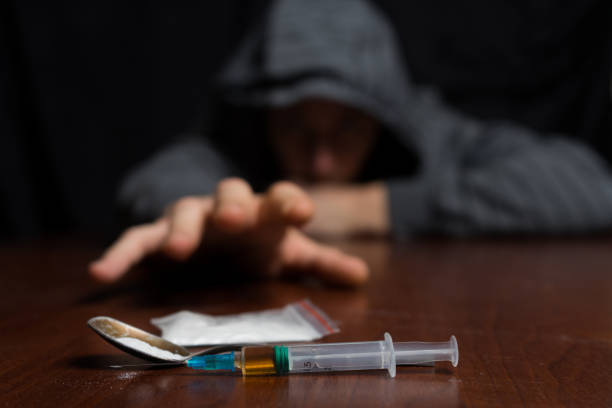Drug abuse is a pervasive issue that impacts millions worldwide, often leading to complex mental health challenges, including depression. The relationship between substance use and depressive disorders is multifaceted and deeply intertwined. Substances can chemically alter the brain, exacerbating or even initiating depressive symptoms.
Recognizing the pathways from drug abuse to depression is crucial for effective intervention and support. This article explores five key ways that substance abuse can contribute to the development of depression, highlighting the importance of understanding and addressing these issues comprehensively.
1. Chemical Imbalance and Mood Disorders
Drug abuse significantly disrupts the brain’s chemical balance, which can lead to mood disorders such as depression. Substances like alcohol and opioids alter neurotransmitters like serotonin and dopamine, crucial for mood regulation and happiness.
Chronic use causes the brain to rely on these substances to stimulate pleasure pathways, leading to chemical imbalances when the drugs are absent. This imbalance manifests as mood swings, irritability, and prolonged sadness, which are symptomatic of depression. Effective treatment must address these chemical disruptions, focusing on restoring neurotransmitter function and overall brain health to mitigate depression’s impact.
2. Isolation and Social Withdrawal
Drug abuse often leads to social isolation and withdrawal, further entrenching individuals in a cycle of depression. Users may avoid social interactions to hide their substance use, or they may lose interest in activities they once enjoyed.
Over time, the lack of social support and interaction exacerbates feelings of loneliness and despair, key factors in the development of depressive disorders. Isolation also reduces the likelihood that individuals will seek help, as they increasingly detach from friends and family who could provide support. Reconnecting with community and rebuilding social ties are essential steps in both addiction recovery and the treatment of depression.
3. Impact on Physical Health
Substance abuse not only impairs mental health but also causes significant physical health deterioration, contributing to the onset of depression. Chronic drug use can lead to a multitude of physical problems, including heart disease, liver damage, and neurological impairment, which can profoundly affect one’s mood and outlook on life. The physical toll of addiction often makes individuals feel hopeless and more susceptible to depressive episodes.
Seeking comprehensive care, such as facilities offering drug rehab in San Antonio, is crucial for addressing both the physical and psychological aspects of recovery. Treatment centers that provide holistic care can significantly improve outcomes by addressing the intertwined nature of physical and mental health.
4. Stress and Anxiety Amplification
Drug abuse is a potent amplifier of stress and anxiety, both of which are critical in the development of depression. Regular substance use alters the brain’s stress pathways, increasing an individual’s sensitivity to stressors and reducing their ability to cope effectively. This heightened stress response can trigger anxiety, which in turn feeds into the cycle of drug use as individuals may use more substances to alleviate these feelings.
The ongoing struggle with anxiety and stress creates a fertile ground for depression, as the individual feels increasingly overwhelmed and incapable of managing their emotional state. This escalation often necessitates professional intervention to break the cycle and restore mental health stability.
5. Disruption of Sleep Patterns
Disruption of sleep patterns is a common consequence of drug abuse, strongly linked to the development of depression. Substances such as stimulants can cause insomnia, while depressants may lead to excessive sleepiness or interrupted sleep cycles.
This erratic sleep schedule disrupts the body’s natural rhythms, leading to poor sleep quality that can diminish mental and physical health over time. Chronic sleep deprivation increases irritability and cognitive impairment, which can exacerbate depressive symptoms.
Proper treatment must include strategies to normalize sleep patterns, as restful sleep is crucial for emotional and physical recovery and overall well-being.
Looking Ahead: Steps to Recovery and Support
Understanding the link between drug abuse and depression is vital for crafting targeted treatments and support systems. Comprehensive care that addresses both the psychological and physiological aspects of addiction is essential.
Recovery is possible with the right support and resources, emphasizing the importance of community and professional help. Encouraging those struggling to seek help can change the trajectory of their lives. Awareness and education are key in preventing drug abuse and its devastating impact on mental health.

